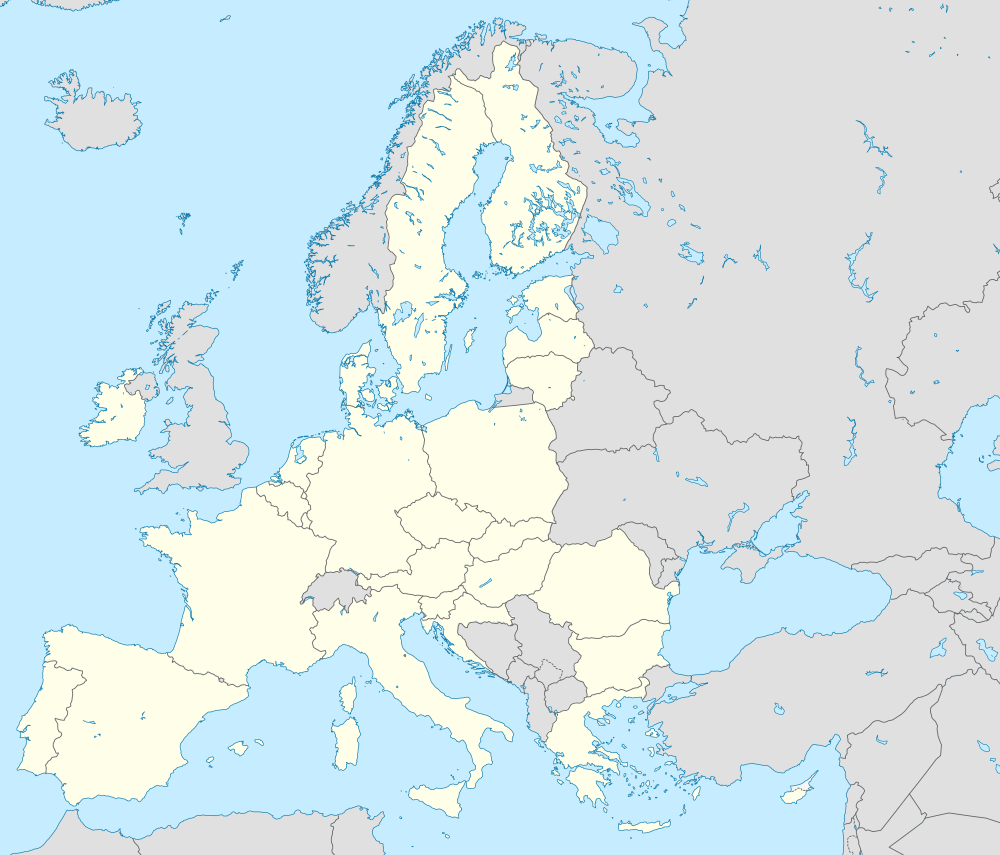European Capital of Culture
Cities recognized by the European Union as culturally significant for Europe From Wikipedia, the free encyclopedia
A European Capital of Culture is a city designated by the European Union (EU) for a period of one calendar year during which it organises a series of cultural events with a strong pan-European dimension. Being a European Capital of Culture can be an opportunity for a city to generate considerable cultural, social, and economic benefits, and it can help foster urban regeneration, change the city's image, and raise its visibility and profile on an international scale. Multiple cities can be a European Capital of Culture simultaneously.



In 1985, Melina Mercouri, Greece's Minister of Culture, and her French counterpart Jack Lang came up with the idea of designating an annual City of Culture to bring Europeans closer together by highlighting the richness and diversity of European cultures and raising awareness of their common history and values.
The Commission of the European Union manages the title, and each year the Council of Ministers of the European Union formally designates European Capitals of Culture: more than 60 cities have been designated so far. The current European Capitals of Culture for 2025 are Nova Gorica in Slovenia with Gorizia in Italy, and Chemnitz in Germany.
Selection process
An international panel of cultural experts is in charge of assessing the proposals of cities for the title according to criteria specified by the European Union.
For two of the capitals each year, eligibility is open to cities in EU member states only. From 2021 and every three years thereafter, a third capital will be chosen from cities in countries that are candidates or potential candidates for membership, or in countries that are part of the European Economic Area (EEA)[1][2]– an example of the latter being Stavanger, Norway, which was a European Capital of Culture in 2008.
A 2004 study conducted for the Commission, known as the "Palmer report", demonstrated that the choice of European Capital of Culture served as a catalyst for cultural development and the transformation of the city.[3] Consequently, the beneficial socio-economic development and impact for the chosen city are now also considered in determining the chosen cities.
Bids from five United Kingdom cities to be the 2023 Capital of Culture were disqualified in November 2017, because the UK was planning to leave the EU before 2023.[4]
History

The European Capital of Culture programme was initially called the European City of Culture and was conceived in 1983, by Melina Mercouri, then serving as minister of culture in Greece. Mercouri believed that at the time, culture was not given the same attention as politics and economics and a project for promoting European cultures within the member states should be pursued.
The European City of Culture programme was launched in the summer of 1985 with Athens being the first title-holder.[5] In 1999, the European City of Culture program was renamed to European Capital of Culture.[6]
List of European Capitals of Culture
Summarize
Perspective
1 The European Capital of Culture was due to be in the UK in 2023. However, due to its decision to leave the European Union, UK cities would no longer be eligible to hold the title after 2019. The European Commission's Scotland office confirmed that this would be the case on 23 November 2017, only one week before the UK was due to announce which city would be put forward.[55] The candidate cities were Dundee,[56] Leeds, Milton Keynes,[57] Nottingham and a joint bid from Northern Irish cities of Belfast and Derry and the town of Strabane.[58]
2 A new framework makes it possible for cities in candidate countries (Albania, Bosnia and Herzegovina, Georgia, Moldova, Montenegro, North Macedonia, Serbia, Turkey, Ukraine), potential candidates for EU membership (Kosovo) or EFTA member states (Iceland, Liechtenstein, Norway, Switzerland) to hold the title every third year as of 2021. This will be selected through an open competition, meaning that cities from various countries may compete with each other.[59]
See also
- American Capital of Culture – In the Americas, title awarded annually by American Capital of Culture, an NGO
- Arab Capital of Culture – Arab League effort to promote and celebrate Arab culture
- European Green Capital Award – Award for a European city based on its environmental record
- European Youth Capital – One year city award
- European Region of Gastronomy – Regional title
- UK City of Culture – Cultural designation in the United Kingdom
- University Network of the European Capitals of Culture – International non-profit association
References
External links
Wikiwand - on
Seamless Wikipedia browsing. On steroids.

